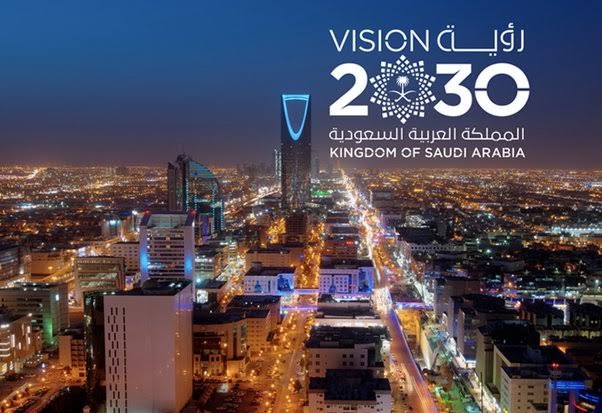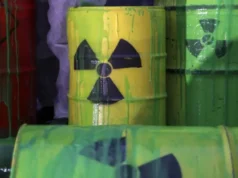Saudi Arabia’s Vision 2030 and the defence production ambition

Saudi Arabia’s Vision 2030, the brainchild of Crown Prince Mohammed bin Salman, is a bold blueprint aimed at modernizing the Kingdom on multiple fronts. Among its numerous ambitious goals, one particularly stands out: the aim to build up the nation’s defence industrial capability to meet at least half of its own defence needs within a few years. This objective is not only about self-reliance but also about transforming Saudi Arabia into a major player in global defence production. As the Middle East continues to experience geopolitical tensions, achieving these goals could dramatically alter the region’s trade and defence landscape.
The feasibility of such a rapid and comprehensive build-up in defence production is indeed a topic of considerable debate. However, the Kingdom’s determined approach, coupled with its significant need for strategic deterrence and unwavering dedication, suggests a high probability of success.
Saudi Arabia’s push towards self-sufficiency in defence production is deeply intertwined with its strategic need for regional stability. As a key player in the Middle East, the Kingdom faces persistent threats and requires a robust defence capability to deter potential aggressors. Historically, Saudi Arabia has relied heavily on international partners for its defence needs, becoming one of the world’s top military spenders. However, this dependency brings its own set of challenges, particularly concerning the reliability and timeliness of foreign supplies.
The Middle East’s volatile geopolitical landscape necessitates that Saudi Arabia has the capacity to mobilize rapidly without being hindered by external supply chain issues. Recent global events have shown that even long-standing alliances can be unpredictable, as domestic politics and changing international policies can impact defence agreements. The United States, a major defence supplier to Saudi Arabia, has demonstrated variability in its Middle Eastern policy, emphasizing the need for the Kingdom to reduce its reliance on external sources.
Moreover, achieving self-reliance in defence production would not only bolster Saudi Arabia’s security but also enhance its prestige on the global stage. Transitioning from a major buyer to a sophisticated producer of advanced military technologies would position the Kingdom as a formidable player in the defence industry, potentially reshaping the regional power dynamics.
The second key factor behind Saudi Arabia’s potential success in ramping up defence production is its unwavering dedication. Vision 2030 encapsulates a comprehensive strategy to localize the defence industry, spearheaded by Saudi Arabian Military Industries (SAMI). Since its inception, SAMI has made significant strides in attracting foreign investment and forging strategic partnerships with leading defence companies, particularly from the United States.
SAMI’s initiatives include developing cutting-edge technologies such as software-defined multiband radio systems, helicopter engines, and naval defence infrastructure. These efforts underscore the Kingdom’s commitment to creating a robust defence manufacturing sector capable of meeting its ambitious targets.
Crown Prince Mohammed bin Salman has championed the localization of defence production not only as a means to bolster national security but also as a catalyst for economic growth. By stimulating an entire economic sector, the Kingdom aims to create jobs, foster technological innovation, and develop a skilled workforce. This holistic approach aligns with the broader goals of Vision 2030, which seeks to diversify the economy away from oil dependency and establish Saudi Arabia as a hub of technology, entertainment, and tourism.
The broader Vision 2030 initiative encompasses a wide array of benchmarks aimed at transforming Saudi Arabia’s cultural and economic landscape. These include doubling household spending on cultural and entertainment activities, tripling the rate of weekly physical exercise among Saudis, and significantly increasing the country’s investment in infrastructure and technology. These benchmarks are designed to work synergistically, fostering a dynamic, modern, and prosperous nation.
The cultural shift envisioned by Vision 2030 is particularly noteworthy. The Kingdom is aiming to reorient itself in a way that maintains its religious and cultural traditions while embracing modernity and rapid growth. This balancing act is crucial for ensuring that the transformation is sustainable and widely accepted by the populace.
An intriguing aspect of Saudi Arabia’s defence ambitions is the potential for regional cooperation. If relations between Saudi Arabia and Israel were to normalize, the combined expertise and technological prowess of both nations could significantly boost the Kingdom’s defence production capabilities. Collaborations with other innovative countries like the UAE could further enhance this potential, fostering a regional environment of shared interests and cooperation.
Such alliances could lead to the sharing of best practices and production technologies, transforming the Middle East into a powerhouse of defence innovation. This shift could contribute to regional stability, as countries unite over common goals and work together to ensure mutual security and prosperity.
Saudi Arabia’s Vision 2030 is a testament to the Kingdom’s bold and forward-thinking approach to modernization. The ambition to localize half of its defence production is a critical component of this vision, driven by the dual imperatives of strategic need and unwavering dedication. While the challenges are formidable, the Kingdom’s comprehensive strategy, significant investment, and potential for regional cooperation position it well for success.
In the grand scheme, Vision 2030 is not merely a checklist of goals but a transformative mindset. It encourages Saudis to think big, embrace rapid growth, and play a leading role on the global stage. As Saudi Arabia continues to push forward with its ambitious plans, the world will be watching closely to see how these efforts reshape the Kingdom and the broader Middle East. If successful, Saudi Arabia will not only secure its own defence needs but also emerge as a key player in the global defence industry, heralding a new era of regional stability and cooperation.



